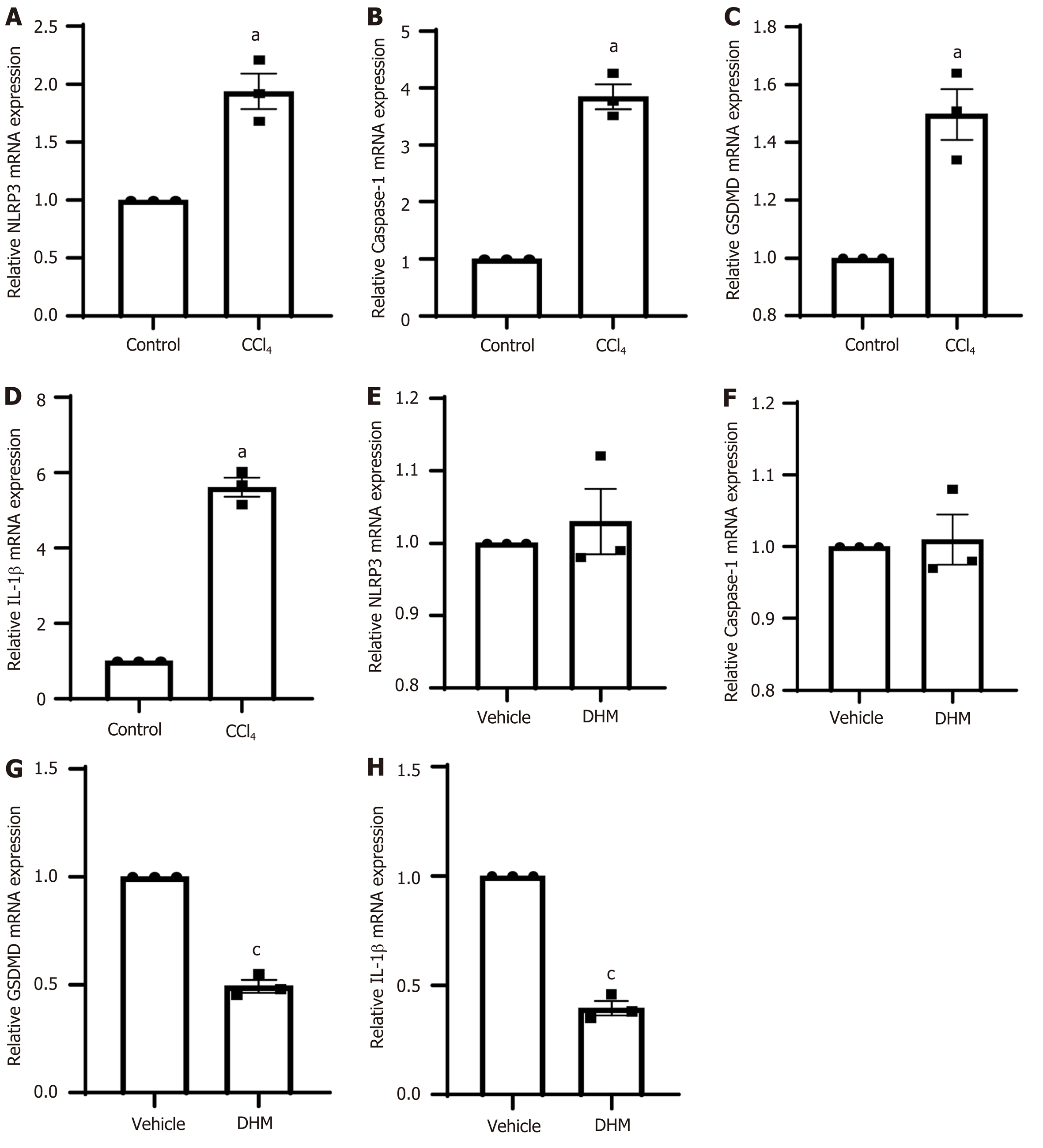Copyright
©The Author(s) 2020.
World J Gastroenterol. Nov 7, 2020; 26(41): 6346-6360
Published online Nov 7, 2020. doi: 10.3748/wjg.v26.i41.6346
Published online Nov 7, 2020. doi: 10.3748/wjg.v26.i41.6346
Figure 5 The relative expression levels of pyroptosis-related genes.
A-D: The relative expression levels of NOD-, LRR- and pyrin domain-containing 3 (NLRP3), caspase-1, gasdermin D (GSDMD) and interleukin-1β (IL-1β) in the control and CCl4 group, respectively; E-H: The relative expression levels of NLRP3, caspase-1, GSDMD and IL-1β in the vehicle and dihydromyricetin group, respectively. aP < 0.01 vs control group; cP<0.01 vs vehicle group; n = 3. NLRP3: NOD-, LRR- and pyrin domain-containing 3; GSDMD: Gasdermin D; IL-1β: Interleukin-1β; DHM: Dihydromyricetin.
- Citation: Cheng QC, Fan J, Deng XW, Liu HC, Ding HR, Fang X, Wang JW, Chen CH, Zhang WG. Dihydromyricetin ameliorates chronic liver injury by reducing pyroptosis. World J Gastroenterol 2020; 26(41): 6346-6360
- URL: https://www.wjgnet.com/1007-9327/full/v26/i41/6346.htm
- DOI: https://dx.doi.org/10.3748/wjg.v26.i41.6346









